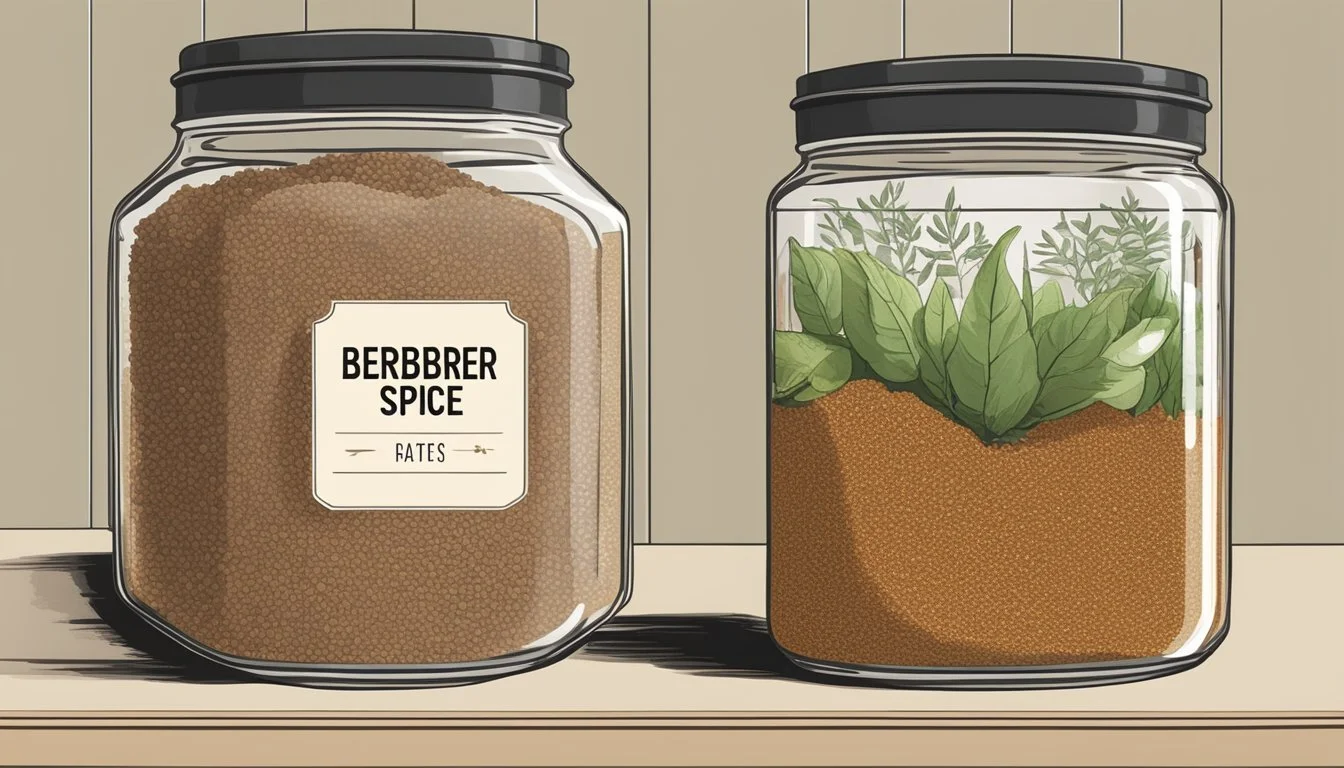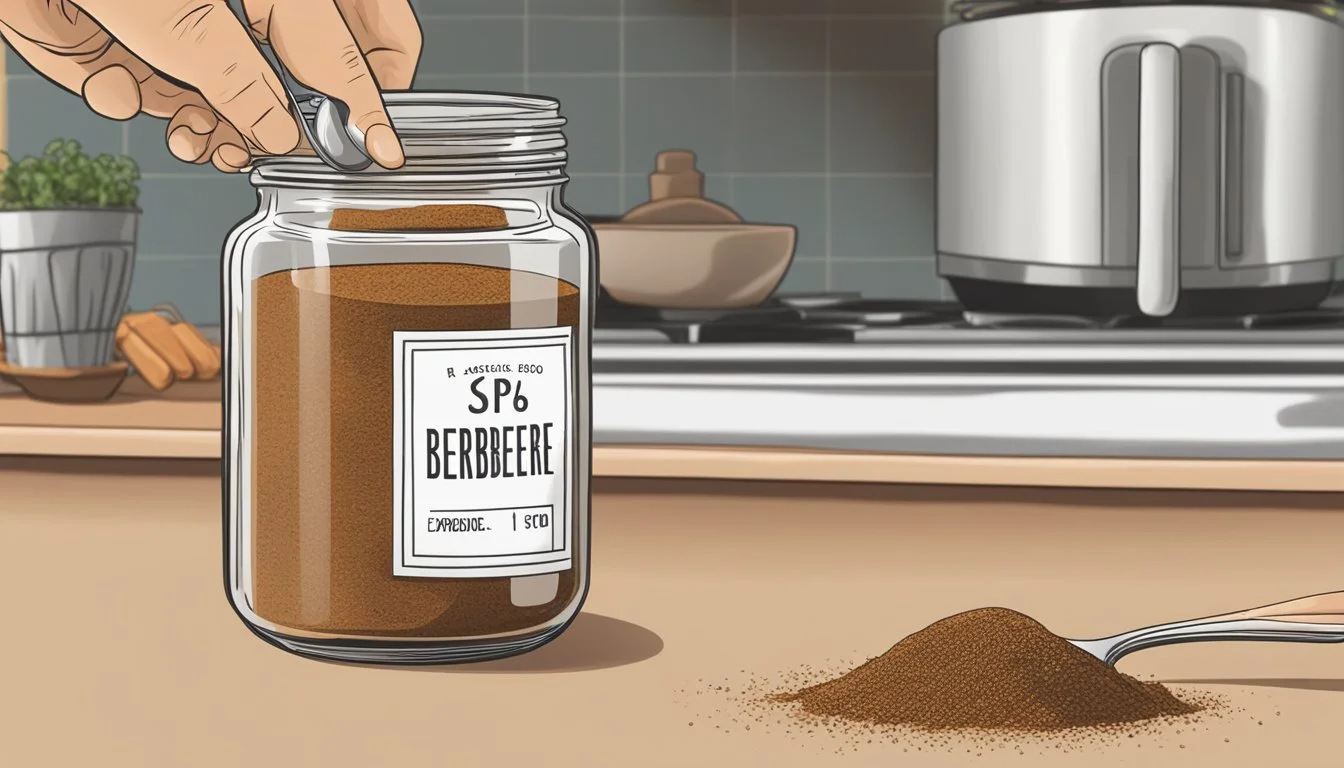Does Berbere Expire?
Shelf Life and Storage Tips
Berbere, a flavorful spice blend, is a staple in Ethiopian and Eritrean cuisine, known for its complex mix of chili peppers, garlic, ginger, and other spices. Like many spice blends, berbere does expire, losing its potency and flavor over time. To ensure the best taste, it is recommended to store berbere in an airtight container and use it within six months.
This blend imparts a unique flavor profile, combining spicy, sweet, and citrus notes, making it versatile for a variety of dishes, from meat stews to vegetable curries. Proper storage can extend its shelf life, but it's essential to note that the spices can deteriorate, even if they haven’t visibly gone bad.
Understanding how to identify expired berbere is crucial for maintaining the authentic taste of your dishes. If the spice blend has lost its vibrant color or aroma, it is likely past its prime. For those passionate about Ethiopian and Eritrean cooking, ensuring the freshness of berbere is key to preserving the integrity of traditional recipes.
Understanding Berbere
Berbere is a complex spice blend with a rich history and deep cultural roots in the Horn of Africa. It's known for its spicy, bold flavor and a mix of ingredients that vary by region and recipe.
Historical Context and Cultural Significance
Berbere originates from Ethiopia and Eritrea. It has been a staple in these regions for centuries, reflecting the unique culinary traditions of the Horn of Africa. The blend is more than just a cooking ingredient; it's a cultural emblem, often made in family kitchens and passed down through generations. The historical roots of berbere are tied to the agricultural practices and trade routes that brought diverse spices to the region, shaping its distinctive taste.
Common Ingredients and Flavor Notes
Typical Ingredients:
Chili peppers
Garlic
Ginger
Basil
Nigella seeds
Fenugreek
Korerima (Ethiopian cardamom)
Cinnamon
Cloves
These ingredients combine to create a spice blend with a robust and multi-layered flavor profile. Flavor Notes include:
Spiciness from chili peppers
Sweetness from cinnamon and cloves
Earthiness from fenugreek
Aromatic depth from korerima and garlic
The result is a blend that is spicy, sweet, and slightly bitter, enhancing a wide array of dishes.
Berbere in Ethiopian and Eritrean Cuisines
In Ethiopian and Eritrean cuisines, berbere is indispensable. It is used to season traditional dishes like Doro Wat (a spicy chicken stew) and Misir Wat (a lentil stew). Its versatility allows it to flavor any combination of meat, vegetables, or legumes. Berbere often serves as a dry rub for meats before frying or grilling, infusing them with its complex flavors. In these cuisines, the spice not only adds taste but also embodies cultural heritage, marking celebrations and daily meals alike.
Composition of Berbere
The composition of Berbere includes a rich blend of spices, each offering unique flavors and nutritional benefits. Various recipes showcase regional differences, which add to its versatility.
Essential Spices and Their Role
Chili Peppers form the base, providing heat and vivid color. They are often combined with milder spices like Paprika and Cayenne. Garlic and Ginger add robust undertones, enhancing depth.
Cardamom and Cinnamon impart sweet notes, while Coriander and Cumin add earthiness. Fenugreek and Nigella seeds offer slight bitterness and nutty flavors. Turmeric brings a warm, subtle touch. Together, these spices create the distinctive profile of Berbere.
Spice Role Chili Peppers Heat and color Garlic Depth of flavor Ginger Warmth Cardamom Sweetness and complexity Cinnamon Aromatic warmth Coriander Earthy undertones Cumin Nutty earthiness Fenugreek Bitterness Nigella Nutty bitterness Turmeric Subtle warmth
Varieties and Regional Differences
Berbere recipes vary by region and household, leading to distinct versions. Some areas emphasize the use of Long Pepper and Ajwain, while others opt for additional aromatic elements like Nutmeg and Allspice.
In some regions, Peppercorns and Corn are included to add a unique twist. The flexibility in composition means each mixture can cater to different taste preferences and culinary uses, allowing for endless customization and flavor exploration.
Nutritional Considerations
The spices in Berbere are packed with health benefits. Chili Peppers and Paprika contain high levels of vitamins A and C. Garlic and Ginger are known for their anti-inflammatory properties.
Cumin, Coriander, and Turmeric support digestion and overall health. Small amounts of Salt often enhance flavor without adding significant sodium. This diversity provides a nutrient-dense addition to dishes, contributing both flavor and wellness.
Preparation and Usage
Berbere, a versatile Ethiopian spice blend, can be made at home and used in a variety of dishes. This section provides detailed instructions on preparing berbere from scratch and explains how to incorporate it into your cooking.
Making Berbere at Home
To make berbere at home, you'll need a combination of whole and ground spices. Start by toasting the whole spices, including chili peppers, coriander seeds, cumin seeds, cardamom pods, and fenugreek seeds, over medium heat for about 1-2 minutes. This enhances their flavors.
Allow the toasted spices to cool completely, then grind them in a spice or coffee grinder. Combine these freshly ground spices with ground cumin, ground coriander, onion powder, paprika, and chili powder. Adjust the amount of chili powder to control the heat level. Mixing ground cinnamon, nutmeg, allspice, and cloves will give your berbere its distinct aromatic profile.
Using Berbere in Cooking
Berbere is widely used in Ethiopian cuisine and can enhance a variety of dishes. It works well as a meat rub for grilling or roasting, adding a rich and spicy kick. For instance, it can be rubbed on chicken, beef, or lamb before cooking.
In stews and marinated dishes, berbere adds depth and complexity. One popular dish is Doro Wat (Ethiopian chicken stew), where berbere is a key seasoning component. It can also be added to vegetables, bean dishes, and hearty stews.
Sprinkle it as a general seasoning for soups or stir-fries to give an extra layer of flavor. The blend can transform simple recipes into vibrant, flavorful meals, reflecting the bold essence of Ethiopian cuisine.
Storage and Shelf Life
Proper storage practices are essential for extending the shelf life of berbere. Ensuring it is kept in the right conditions helps maintain its flavor and quality.
Proper Storage Methods
To preserve the freshness of berbere, it should be stored in an airtight container. This prevents exposure to moisture, which can cause spoilage.
Ground spices, like berbere, are more susceptible to losing their potency if not stored correctly.
Berbere should be kept away from direct light, which can degrade its color and flavor. A cool, dark place, such as a pantry or cupboard, is ideal.
If you live in a humid environment, consider adding a desiccant packet to the container to absorb excess moisture. This can prevent the growth of mold.
Generally, properly stored berbere can last up to a year. Always check for any signs of spoilage like an off smell before use.
Comparative Spices
Berbere is often compared to other spice blends due to its unique mix of chili peppers, garlic, ginger, and other components. Here, we explore how berbere stands up against several popular spice blends such as Baharat and Garam Masala.
Berbere Versus Other Spice Blends
Berbere: This Ethiopian and Eritrean spice blend packs a punch with its combination of chili peppers, garlic, ginger, cinnamon, and cardamom. Its bright red-orange color and complex flavor make it distinctive.
Baharat: A Middle Eastern blend, Baharat features spices like black pepper, coriander, cumin, and paprika. It has a warm, slightly sweet profile that’s less spicy compared to berbere. Baharat is versatile enough for meat, fish, and stews.
Garam Masala: Popular in Indian cuisine, Garam Masala includes spices such as cinnamon, cardamom, cloves, cumin, and coriander. This blend offers a warm, aromatic flavor but lacks the heat inherent in berbere.
By comparing these blends, it's evident that while berbere offers a strong, spicy kick, others like Baharat and Garam Masala provide their own unique, milder flavors.







